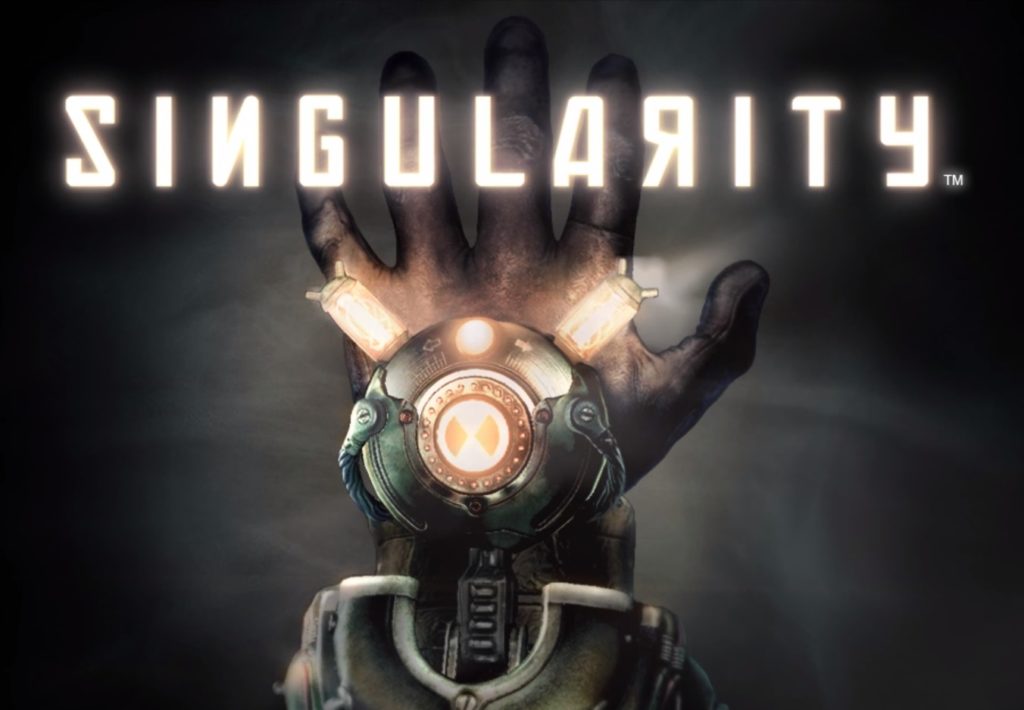
When thinking of a title for my post on Daikatana, I decided on calling it a “fascinating failure” quite on my own. After having such a neat description come to mind, I couldn’t believe I could have been the first to come up with it so I made a quick search of the term after posting. Sure enough, I got quite a few hits including this post from 2015. The writer’s fitting description mirrors mine:
Fascinating failures are products of passion, ambition and originality, where the lofty goal has exceeded the reach of the creator. Fascinating failures take risks.
So I didn’t originate the term but I had the same idea in mind as this indeed describes Daikatana perfectly and certainly the subject of this post as well.
The subject is Raven Software’s Singularity which originally released in 2010 and I recently replayed on PC. I first played it about a decade ago on Xbox 360 and though brief, the game stuck with me. Singularity differs from Daikatana as it wasn’t heavily promoted and had the budget and development time shortened which meant the developers had to make significant cuts to get the game out on schedule. It was generally well-received by those who played it but unfortunately that wasn’t very many and it was a commercial failure. This article and this rather excellent video give an overview of the game’s development and my thoughts on the merits of the game as released follow below.
Singularity takes place on Katorga-12, a small island where the Soviet Union had conducted experiments in the 1950s. In the present day the protagonist Nathaniel Renko is sent their as part of a small team after an electro-magnetic surge originating from the island disabled a spy satellite. Another pulse causes the helicopter he is riding in to crash and Renko finds himself on the island near the wreckage. While investigating he is transported to the island as it was in 1955 and inadvertently changes history by saving the scientist Nikolai Demichev. Soon after he meets Kathryn and another scientist Victor Barisov who are fighting against Demichev. The time disruption was caused by experiments with an element discovered on the island called E-99. This element is used to power the Time Manipulation Device (TMD) which was invented by Barisov and acquired by Renko (the player) early in the game. Naturally, Renko has to save the day.
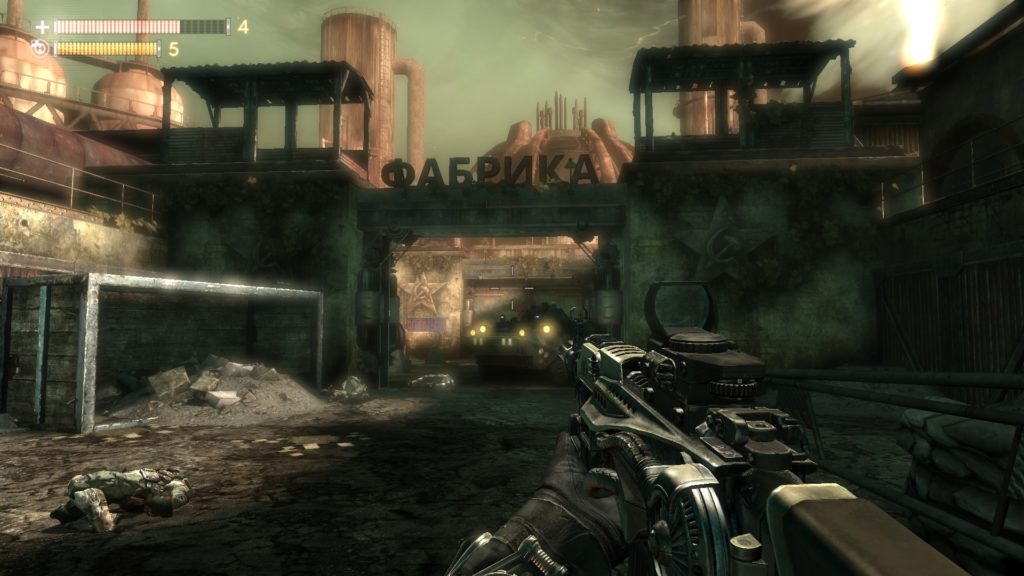
This may or may not sound “out there” as far as premises go but is not at all unusual in the world of video games. As in most games, the plot is more in service of the gameplay than vice versa and in Singularity this is mostly through the aforementioned TMD. Over the course of the game Renko acquires many powers such as the ability to freeze enemies in time bubbles, restore decayed objects such as metal crates and stairs along with a few offensive skills too. This is all tied to a progression system and the TMD can be upgraded by collecting E-99 canisters found all over the island.
In practice, the TMD is mostly used to open previously inaccessible areas and solve puzzle when not being used offensively against enemies and reviewers at the time understandably found this shallow. If you read anything into the development though, this was supposed to be expanded beyond a simple progression tool but a limited budget and development deadlines meant a lot had to be stripped back. The main evidence of what could have been was a set-piece toward the end of the game where an entire shipwreck is restored by the TMD and then begins decaying as the player is exploring and then escaping it. This was one of the highlights of the game and it is a shame there wasn’t more of it. Even in it’s simple form, the TMD adds a fun variety of mechanics to the gameplay and it does still elevate Singularity among many other shooters at the time.
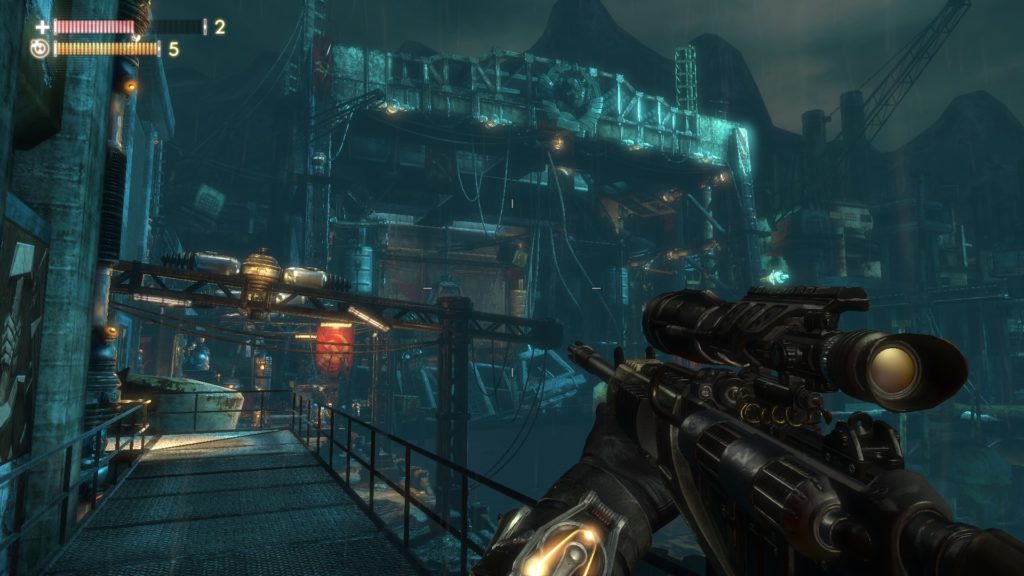
Raven Software has a long and consistent legacy of quality first-person shooters and this is what Singularity is at its core. The shooting mechanics are excellent and there is a good variety of weapons as well as enemies to use them on. These include Soviet soldiers and a variety of monsters mutated by E-99 though the former tend to be more common. The weapons include the standard handgun, shotgun, assault rifle and sniper rifle but also a number of more unique weapons. The Dethex Launcher (grenade launcher) has a function where the grenade can be controlled and rolled through small gaps into enemies. The most fun to use is the Seeker which is limited to a few points in the game and allows the player to directly control the bullet fired from the rifle. This has appeared in other games but was well-implemented and fun nonetheless. In practice, I mostly stuck to the assault rifle and sniper rifle because they were the most reliable and because you are limited to two weapons at a time. This had become common in shooters since the original Halo but I believe it was a flawed and unnecessary limitation here. The other weapons aren’t bad but this limitation also limits the impetus to experiment and this does hurt the game.
Singularity isn’t a particularly difficult game and after acquiring the TMD and with a few weapon upgrades, it becomes progressively easier and the final few levels are probably the easiest to get through — but also the better parts of the game. It was more challenging early on when weapon and ammo access was limited and this is another reason why the developers should have just let the player hold all at once and adjusted enemy damage or encounters to compensate. I only played on the normal difficulty both in my recent playthrough and I think when I first played it so I can’t speak for the hardest difficulty. Though mostly easy, it is still immensely fun and I never found any portions boring. The campaign is relatively short but it balances environmental puzzles, combat and exploration close to flawlessly.
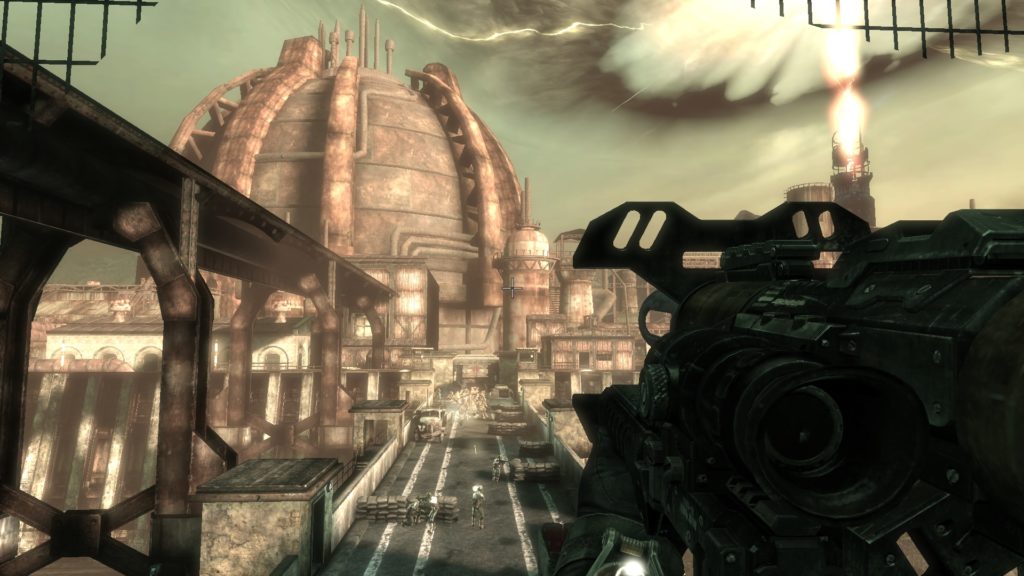
As shown in the images, the artistic design and visuals were excellent and still hold up quite well today. With my aging video card, I was pleased to have a game that looked great but still played smoothly which is something I’m less and less able to do with more recent releases. What is more impressive is that many environments had to be created twice to represent the different time periods. There are (to be sure) plenty of bland corridors, warehouses and factories but these are not so common that they hurt the experience. There was clearly a lot of effort put into bringing the world alive and plenty of objects littered about that enhance this.
For what I began by calling a “fascinating failure”, I have been overly positive but it needs to be remembered that Singularity was mostly a commercial failure and isn’t a bad game. Mentioning it together with Daikatana might also seem harsh but all they have in common is time travel, interesting weapons and the fact they’re both first-person shooters that sold poorly. Daikatana was an overly ambitious title that ended up a critical and commercial failure with little to redeem it. Singularity simply wasn’t given what it needed to succeed but still ended up being a great game. At the time of release it was unfavourably compared to BioShock which is true in a number of respects though the early development and concept predates BioShock‘s 2007 release. Rather than seeing this in a derisive sense, I think it is high praise and Singularity is actually betters BioShock in some respects — especially with the excellent shooting mechanics.
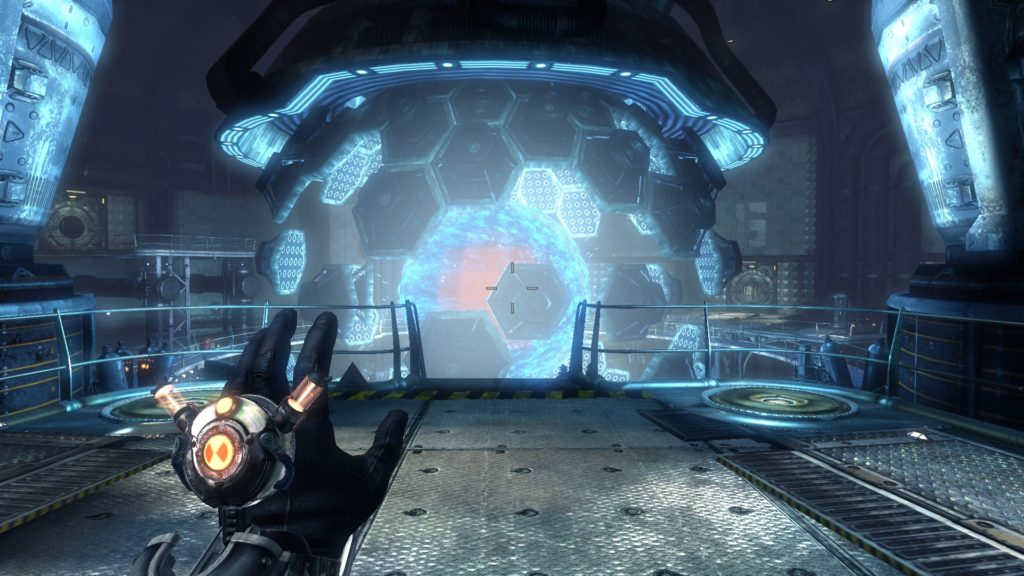
It is a shame is that the developers weren’t given the time, resources and ultimately the promotion to create the game they set out to do. That it was still a highly competent game despite these limitations deserves commendation. This was the last game Raven Software developed before becoming one of multiple studios developing yearly Call of Duty releases. This is certainly a fall from what they were but had Singularity been both a critical and commercial failure, I doubt the studio would have lasted very long before Activision closed them down altogether. If nothing else, this game showed they could produce a competent product within a set deadline.
One final though is that remakes and remasters are becoming more and more common yet these are usually for games that were highly successful. It might not make much financial success but giving game’s that fell short of the original vision another chance to shine would be better way to go if we’re to continue to have remakes. Why remake something that worked when you could fix something that was broken, improve on a flawed design or fulfill unrealised potential?
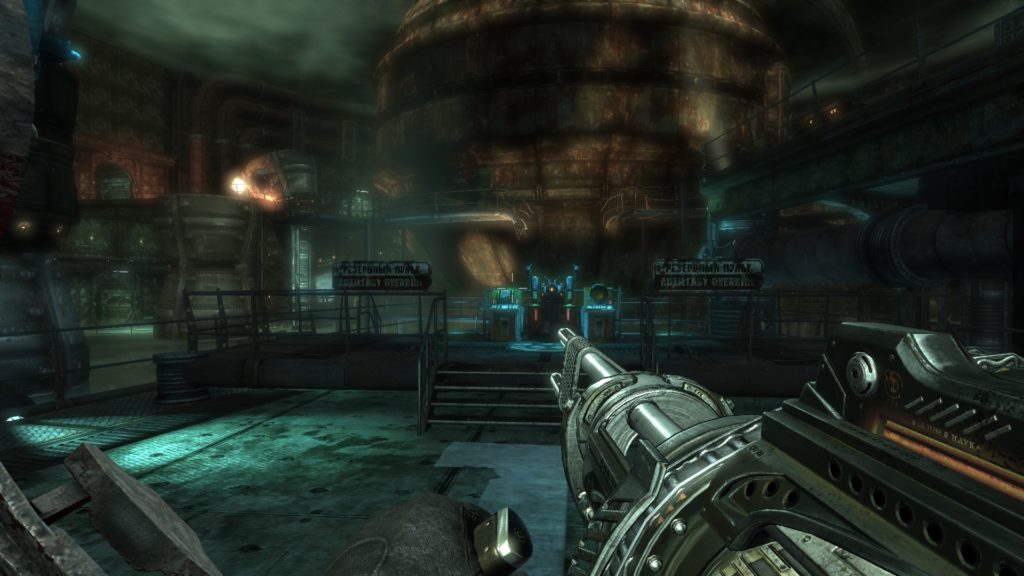
Singularity is still readily obtainable online and I assume there are still plenty of copies for Xbox 360 and PlayStation 3 around too. As Activision still retains the rights, the discount on sales is rarely generous but it did get low enough recently for me to bite. However you go about it, it is well-worth it for anyone looking for a solid shooter with an interesting concept.
